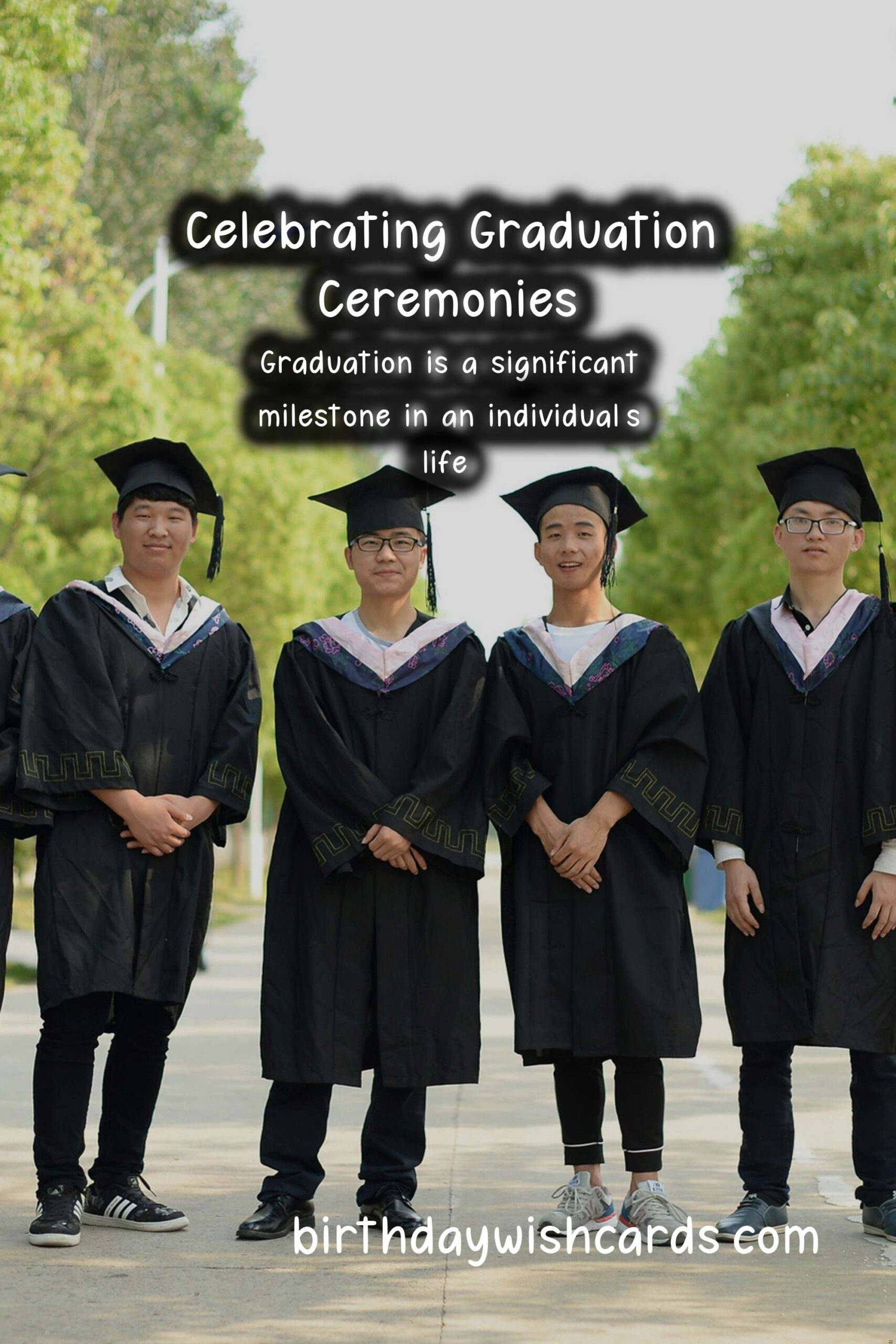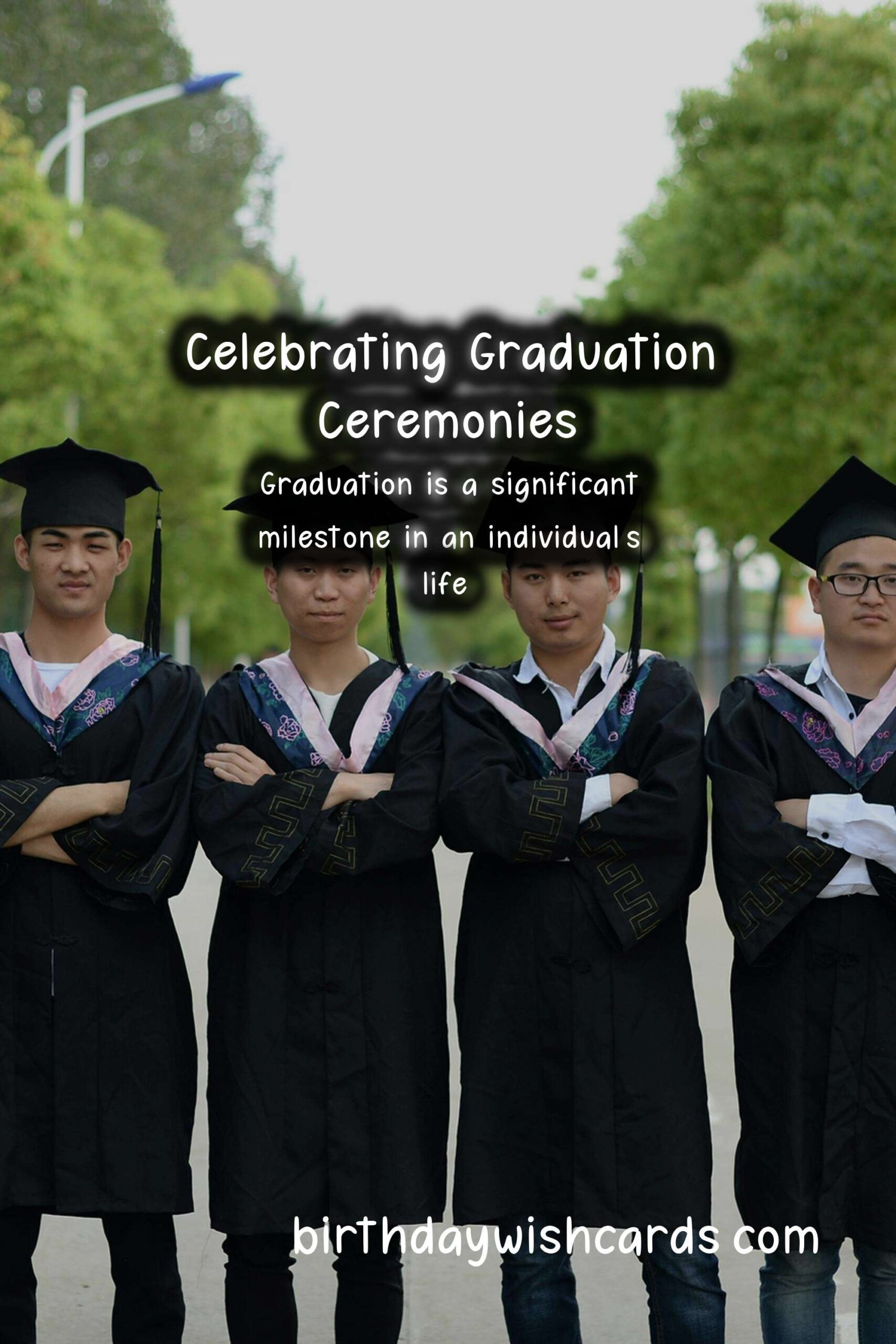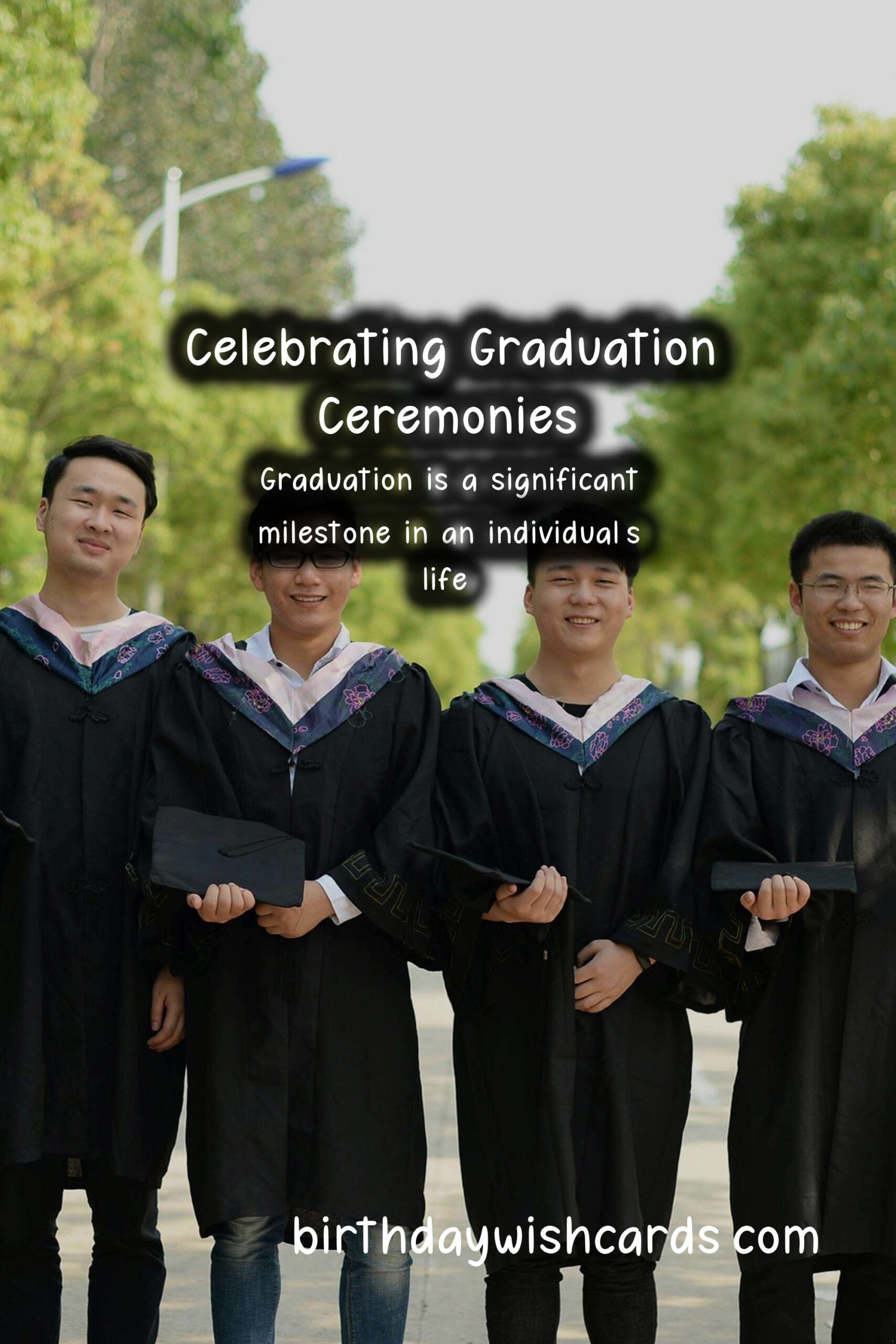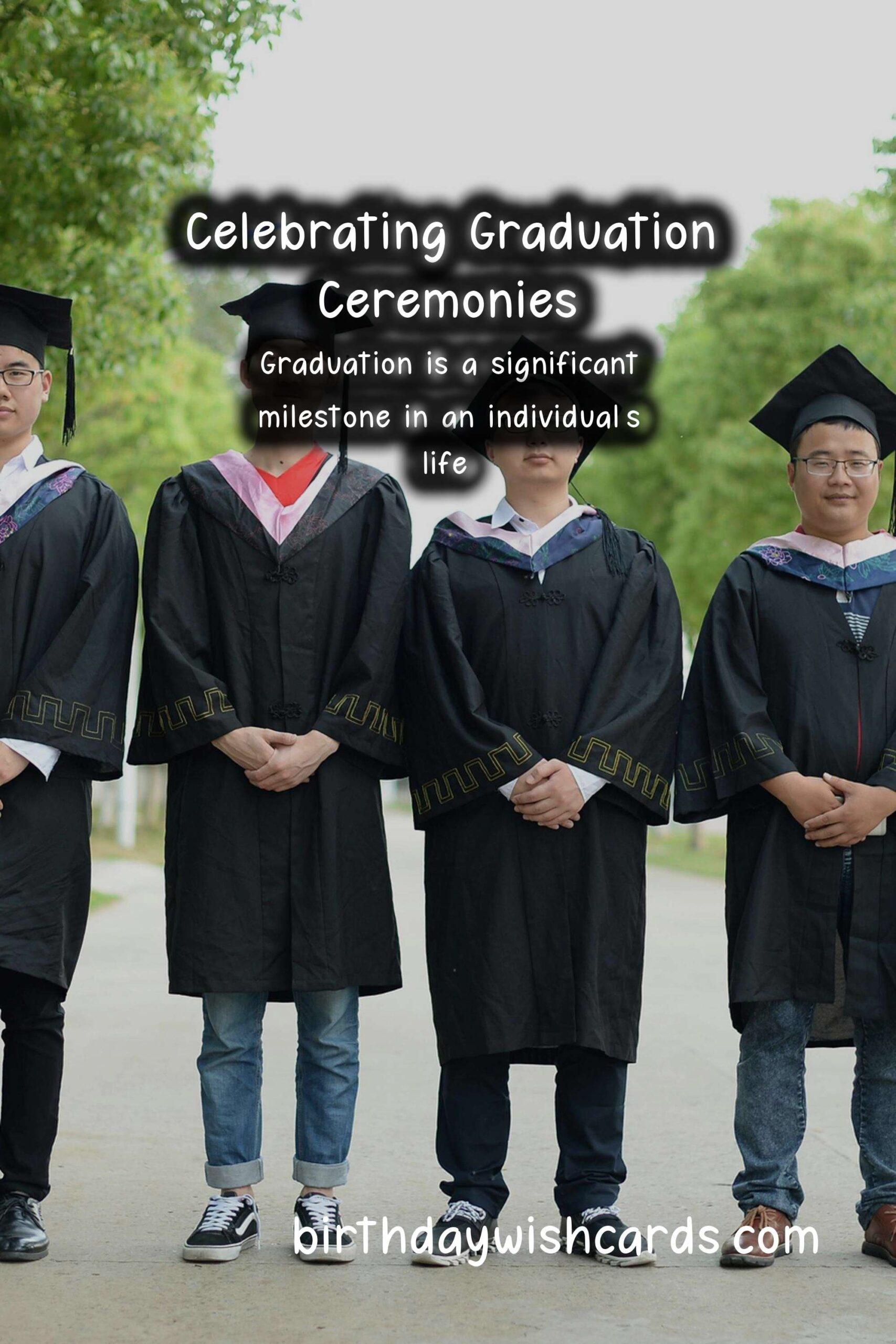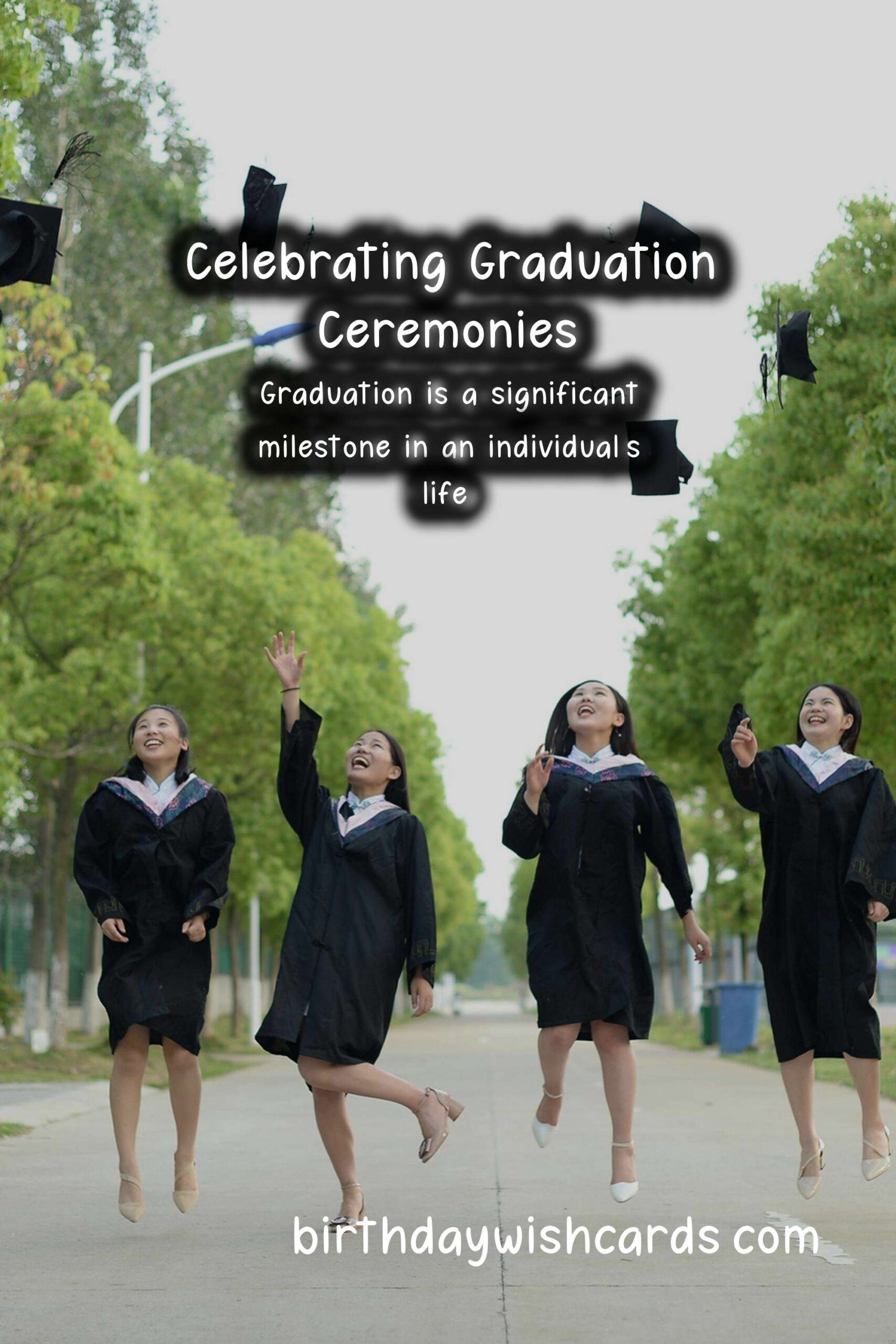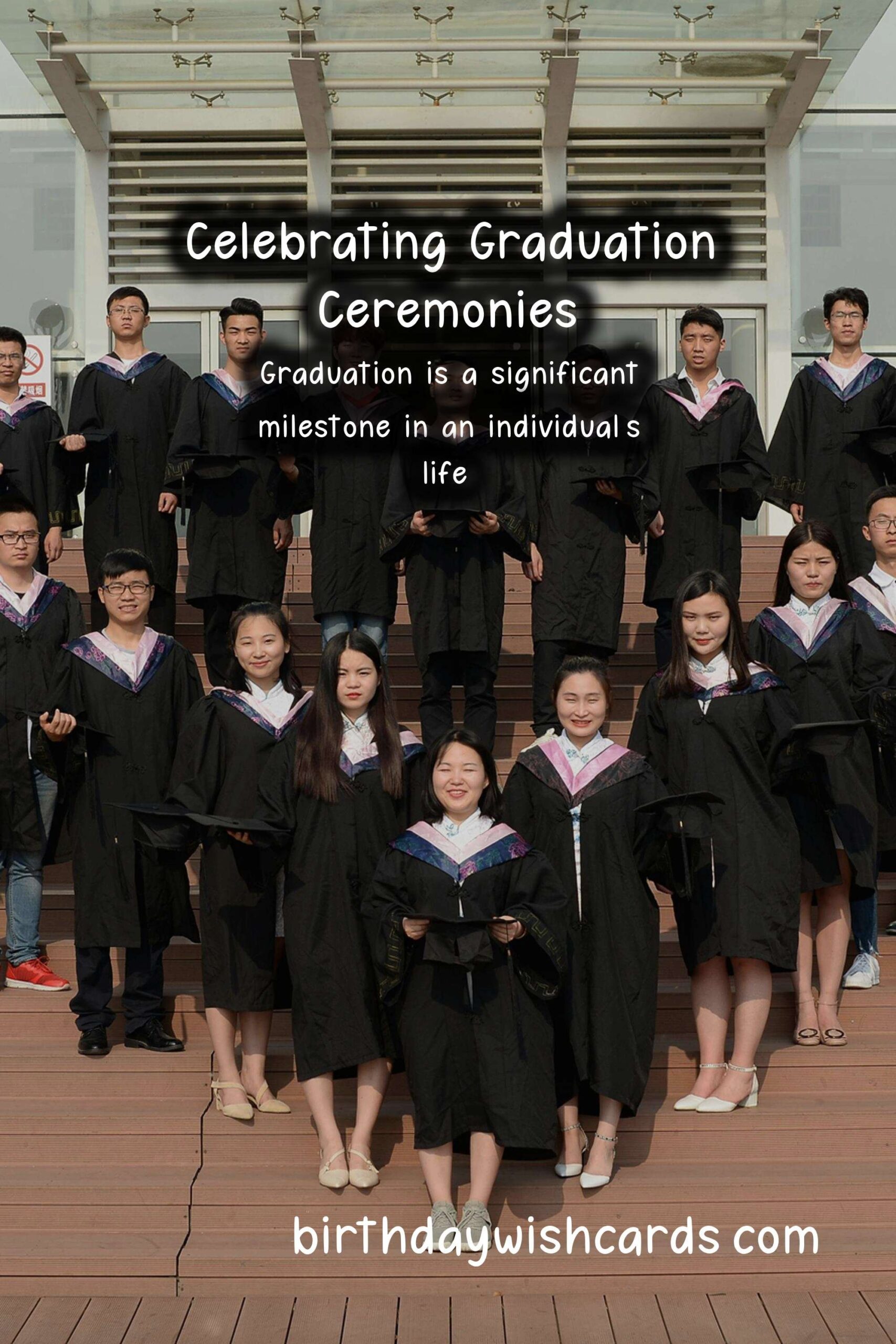The History Behind Graduation: A Journey Through Time
The History Behind Graduation: A Journey Through Time
Graduation is a significant milestone in an individual’s life, marking the transition from one educational phase to another. The origins of this ceremonial event date back centuries, with roots deeply embedded in ancient traditions. In this article, we will explore the fascinating history behind graduation, its evolution, and its impact on society.
1. The Early Beginnings of Graduation
The concept of formal education has been around for thousands of years, with the earliest forms of schooling found in ancient civilizations such as Mesopotamia, Egypt, and China. In these societies, knowledge was often reserved for a select few, primarily those from affluent families.
As civilization progressed, the need for educated individuals grew, leading to the establishment of more structured educational systems. The first known university, the University of al-Qarawiyyin in Morocco, was founded in 859 AD, and it was here that the idea of graduation as a formal recognition of academic achievement began to take shape.
2. The Influence of the Medieval University
By the medieval period, universities began to spread throughout Europe, significantly influencing the graduation ceremony. The University of Bologna, founded in 1088, is often regarded as the first university in Europe and set the precedent for academic degrees and the formalities associated with graduation.
During this time, students who completed their studies were given diplomas or certificates, recognizing their educational accomplishments. This practice eventually evolved into the modern graduation ceremony we know today.
3. The Elements of Graduation Ceremonies
The modern graduation ceremony typically includes several key elements: the cap and gown, speeches, and the conferral of degrees. These components have historical significance, dating back to medieval traditions.
3.1 The Cap and Gown
The cap and gown worn by graduates today have their origins in the academic dress of medieval scholars. The gown, resembling the robes worn by clerics, represented the seriousness of the academic pursuit, while the cap, known as the mortarboard, symbolized the transition from student to scholar.
3.2 The Commencement Speech
Another integral aspect of graduation ceremonies is the commencement speech, often delivered by distinguished guests. This tradition dates back to the 19th century when alumni and notable figures began to address graduates, offering wisdom and encouragement as they embarked on their future endeavors.
4. Graduation Traditions Around the World
Graduation ceremonies vary widely across cultures, each reflecting its unique customs and traditions. In Japan, for instance, graduation is celebrated with significant fanfare, often including elaborate ceremonies and presentations of certificates. In contrast, many European countries adopt a more subdued approach, focusing on academic achievement over pomp and circumstance.
4.1 The United States
In the United States, graduation ceremonies often take place in the spring, symbolizing not only the end of the academic year but also the beginning of new journeys for graduates. These events are marked by music, speeches, and the sharing of heartfelt moments among peers and family.
4.2 Other Cultural Practices
In Latin American countries, graduation celebrations can span several days, with families coming together to celebrate. Graduates often receive a ‘graduation ring’ as a token of their achievement, which they wear with pride.
5. The Importance of Graduation
Graduation is more than just a ceremony; it represents the culmination of years of hard work, dedication, and perseverance. For many, it is a significant life achievement that opens doors to further education or career opportunities.
The value of graduation extends beyond the individual, contributing to societal growth and development. Educated individuals are critical for progress, innovation, and the betterment of communities.
6. The Future of Graduation Ceremonies
As society evolves, so too do the traditions surrounding graduation. In recent years, virtual graduation ceremonies have gained popularity, especially in the wake of the COVID-19 pandemic. These online events allow graduates from around the world to celebrate their achievements, albeit in a different format.
Looking ahead, it is essential to consider how cultural shifts and technological advancements will continue to shape graduation experiences. The essence of the celebration, however, will always remain rooted in recognizing and honoring educational accomplishments.
Conclusion
In conclusion, the history of graduation is rich and varied, reflecting centuries of educational practices and cultural significance. From its early beginnings in ancient civilizations to modern-day ceremonies, graduation serves as a pivotal event in the lives of many individuals. As we look toward the future, it is crucial to embrace the evolving landscape of education and the celebrations that accompany it.
Graduation is a significant milestone in an individual’s life.
The concept of formal education has been around for thousands of years.
#Graduation #Education #History



